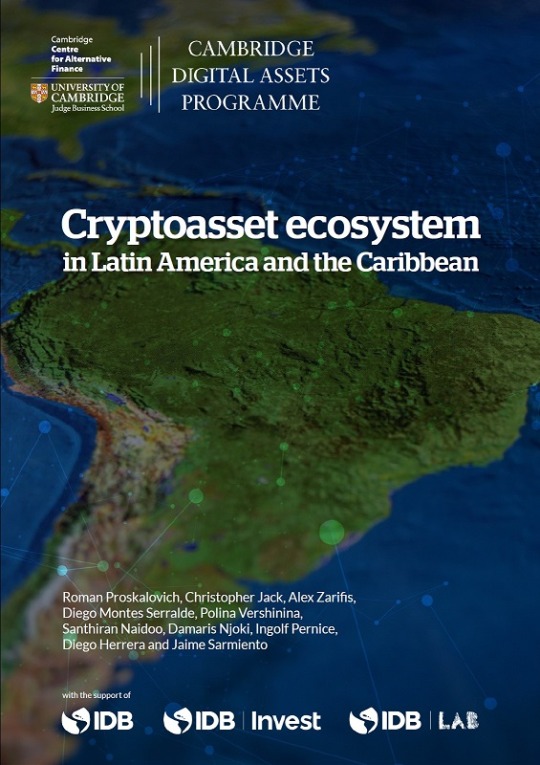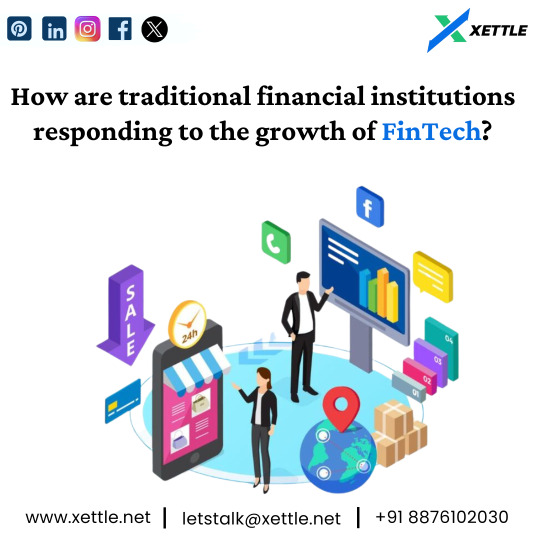#IT Service Providers for Fintech firms
Explore tagged Tumblr posts
Text
Best Ecommerce Solutions for Startups and Retail Businesses in Vavuniya
In today’s digital world, having a strong online presence is essential for any business looking to grow. Whether you're a startup or a retail store in Vavuniya, the right ecommerce solution can help you reach more customers, increase sales, and streamline operations.
If you're looking for a complete ecommerce solution in Vavuniya, partnering with an expert ecommerce solution provider ensures a hassle-free setup and smooth management of your online store.
Why Choose an Ecommerce Solution for Your Business?
Setting up an online store involves more than just creating a website. A complete ecommerce business solution in Vavuniya includes everything from website development to secure payment gateways and order management systems. Here’s why businesses in Vavuniya are shifting towards ecommerce:
Wider Customer Reach: Sell beyond local markets and attract customers from different regions.
24/7 Availability: Unlike physical stores, an ecommerce website allows customers to shop anytime, increasing sales opportunities.
Cost-Effective Operations: Reduce overhead costs and automate processes like inventory management and customer support.
Seamless Customer Experience: A well-designed online store enhances user experience, boosting customer satisfaction and retention.
Ecommerce Solutions for Retail in Vavuniya
Retail businesses in Vavuniya can benefit from customized ecommerce solutions that cater to their specific needs. Whether you run a clothing store, electronics shop, or grocery business, a reliable ecommerce solution provider company in Vavuniya can help you:
Build an easy-to-use online store.
Integrate secure payment gateways.
Implement inventory and order tracking systems.
Optimize the store for mobile and SEO for better reach.
Choosing the Right Ecommerce Solution Provider in Vavuniya
When selecting an ecommerce solution provider, consider the following factors:
Customization Options: Ensure the solution fits your business needs and brand identity.
Scalability: Choose a provider that allows you to expand as your business grows.
Security Features: Protect customer data with secure payment and cybersecurity measures.
Ongoing Support: A good provider offers technical support and regular updates to keep your store running smoothly.
Take Your Business Online Today!
If you’re looking for the best ecommerce solution for startups in Vavuniya, now is the time to take action. A professional ecommerce solution provider can help you launch and manage a successful online business with ease.
Get started today and transform your retail business with the power of ecommerce!
#Digital Marketing Agencies#Digital Marketing Company#IT Service Providers for Fintech Companies#IT Service Providers for Fintech Development#IT Service Providers for Fintech firms#IT Service Providers for Fintech Technology#IT Service Providers for Fintech Enterprises#IT solution provider company#Ecommerce Solution for Startup#Mobile App Development
0 notes
Text
From Casinos to Crypto: How Las Vegas Became a Blockchain Innovation Hub

Las Vegas, long synonymous with its iconic casinos and vibrant entertainment, is now emerging as an unexpected hub for blockchain innovation. Inspired by the gaming industry’s need for security, transparency, and enhanced user experiences, the city is becoming a leader in fintech applications powered by blockchain. This transformation is driving the convergence of technology, finance, and entertainment, paving the way for the city’s tech-driven future. Fifteen years ago, in 2010, 10,000 Bitcoin was used to purchase two pizzas, a transaction that marked the first real-world use of the cryptocurrency. At the time, Bitcoin was practically worthless. Fast forward to today, and the value of Bitcoin has skyrocketed. Now, selling just 33 Bitcoin could buy you a $3 million penthouse at the prestigious Four Seasons Private Residences in Las Vegas. This dramatic shift highlights not only Bitcoin’s meteoric rise but also redefining how wealth and assets are exchanged in a tech-driven world.
1. Blockchain Integration in Las Vegas
Resorts World Las Vegas
Resorts World Las Vegas is a prime example of how casinos are embracing blockchain technology and digital currencies.
Crypto Payments: The casino allows customers to use Bitcoin and Ethereum for hotel bookings, dining, and other services, partnering with Gemini, a regulated crypto exchange.
Cashless Gaming: Patrons can use mobile wallets instead of carrying physical cash. This not only enhances convenience but also increases transaction security, reducing risks of theft or fraud.
Wynn Las Vegas
Wynn Las Vegas has partnered with fintech firms to explore blockchain-based loyalty rewards programs. Customers can earn digital tokens tied to casino activities, which can be redeemed for hotel stays, entertainment, or dining experiences.
Case Study: Blockchain for Fair Play
A notable example of blockchain in casinos is FunFair Technologies, a platform that offers decentralized casino solutions using Ethereum smart contracts. While not exclusive to Las Vegas, FunFair’s model ensures provable fairness by publishing game outcomes on the blockchain, making it impossible for casinos to manipulate results.
Such innovations are being tested in Las Vegas-style gaming platforms globally, showing how blockchain can build trust between casinos and players.
Casinos in Las Vegas Accepting Bitcoin for Payments
Golden Gate Hotel & Casino
Location: 1 Fremont Street, Las Vegas, NV 89101
Details: As the oldest casino in Las Vegas, Golden Gate accepts Bitcoin for hotel bookings, dining, and gift shop purchases.
Note: Bitcoin is not accepted for gambling activities but can be converted to U.S. dollars for gaming.
The D Las Vegas Hotel & Casino
Location: 301 Fremont Street, Las Vegas, NV 89101
Details: The D Las Vegas allows Bitcoin payments for hotel rooms, dining, and merchandise at its gift shop.
Note: Bitcoin cannot be used directly for gambling but works for other non-gaming services.
Resorts World Las Vegas
Location: 3000 Las Vegas Blvd S, Las Vegas, NV 89109
Details: Resorts World has partnered with Gemini, a cryptocurrency platform, to accept Bitcoin for hotel stays, dining, and select retail purchases.
Innovation: The resort also offers cashless gaming solutions, making it one of the most tech-forward destinations on the Strip.
2. Fintech Innovations Inspired by Gaming
The gaming industry’s push for seamless, secure, and engaging user experiences has inspired broader fintech applications.
Cashless Gaming Solutions
Casinos like The Venetian and MGM Grand have integrated cashless payment systems. Platforms such as Sightline Payments provide mobile wallets for gaming, dining, and retail, eliminating the need for physical cash.
These systems use fintech innovations like real-time payment settlement and biometric security for user verification, enhancing both speed and safety.
Gamification in Fintech
Gamification—using game-like elements in financial services—draws heavily from the gaming industry’s playbook.
Example: Robinhood: The stock trading app uses gamified features such as streaks, confetti animations, and rewards to engage users.
Las Vegas Influence: Gaming incentives and loyalty programs serve as inspiration for fintech apps offering rewards for saving, spending, or investing responsibly.
Case Study: The Link Between Casinos and Fintech Apps
Las Vegas casinos often deploy advanced AI-powered analytics to predict player behavior and optimize incentives. This same data-driven approach is now being used in fintech apps like Acorns and Stash, which offer personalized financial advice and savings plans based on user habits.
3. Las Vegas-Based Blockchain Gaming Companies
Infinite Games
Las Vegas-based Infinite Games is pioneering blockchain integration in mobile and online gaming:
NFT Ownership: Players can own in-game items as NFTs (non-fungible tokens), enabling trade and resale across different platforms.
Player Economy: By using blockchain, Infinite Games creates decentralized gaming economies where players can monetize their skills and assets.
PLAYSTUDIOS
PLAYSTUDIOS, famous for its loyalty-based mobile games, is exploring blockchain to make rewards more transparent and tradable:
Blockchain allows digital tokens to replace traditional rewards points. Players can transfer, sell, or redeem tokens in ways not previously possible.
Emerging Companies in the Sector
Startups like Decentral Games are pushing the boundaries by creating virtual casinos in the metaverse, powered by blockchain and cryptocurrencies.
Players can visit virtual versions of Las Vegas casinos, bet using digital assets, and enjoy provably fair gameplay.
4. Future Prospects for Blockchain in Las Vegas
Las Vegas’s integration of blockchain technology points toward a future that is both innovative and economically diverse.
Enhanced Security and Transparency
Blockchain creates an immutable ledger for transactions, making gaming and financial processes tamper-proof and transparent.
For example, blockchain is being explored to log all bets, winnings, and payouts, ensuring trust between players and casinos.
Blockchain for Tourism and Hospitality
The Las Vegas tourism industry can leverage blockchain for smart contracts in hotel bookings, event tickets, and tours.
For instance, a blockchain-based booking platform could eliminate intermediaries like OTAs (Online Travel Agencies), offering tourists lower costs and direct transparency.
Economic Diversification
By embracing blockchain technology, Las Vegas is diversifying its economy beyond casinos and entertainment:
Tech Startups: The city’s business-friendly policies are attracting fintech and blockchain startups.
Investors and Talent: Las Vegas is becoming a hub for blockchain conferences like Money 20/20, drawing global investors and tech talent.
Conclusion
Las Vegas’s journey from a global gaming capital to a blockchain innovation hub is a testament to its ability to adapt and evolve. By integrating blockchain into its casino operations, the city is setting new standards for transparency, security, and user engagement in gaming and fintech. From cashless gaming solutions to decentralized casinos, Las Vegas serves as both a case study and a blueprint for other cities looking to harness the power of blockchain.
Platforms like RealOpen are now facilitating real estate purchases using Bitcoin, Ethereum, and other cryptocurrencies. These platforms convert crypto to cash en route to escrow, allowing buyers to purchase any property, even if the seller isn’t crypto-friendly. For example, crypto enthusiasts can test these innovations by using Bitcoin to purchase luxury properties, including a Trump Las Vegas condos for sale. This seamless process allows digital asset holders to invest directly into the Las Vegas real estate market, turning crypto wealth into tangible luxury assets.
As fintech innovations inspired by the gaming industry continue to grow, Las Vegas is uniquely positioned to lead this revolution—solidifying its status not just as the Entertainment Capital of the World, but also as a Tech and Blockchain Capital for the Future.
8 notes
·
View notes
Text
















11 January 2024: Crown Prince Hussein, accompanied by Princess Rajwa, attended the launch of the Jordan-Singapore Tech Alliance Forum.
Speaking at the launch, Crown Prince Hussein highlighted the forum’s importance in unifying the two countries’ efforts towards technological excellence.
He stressed Jordan’s keenness to become a rising force on the international tech scene, highlighting the importance of digital transformation and entrepreneurship in nurturing creativity and turning ideas into reality.
The similarities between tech talents in Jordan and Singapore can be a bridge that connects the two countries and enhances cooperation in service of mutual interests, the Crown Prince said at the forum, held by the Ministry of Digital Economy and Entrepreneurship and Jordan’s embassy in Singapore, in cooperation with the Singapore Business Federation and SG Tech. (Source: Petra)
His Royal Highness invited business people, experts, and CEOs to visit Jordan to learn more about the ICT and entrepreneurship sector, which is full of promising Jordanian talents.
Minister of Digital Economy and Entrepreneurship Ahmad Hanandeh said that with more than 8,000 students graduating from IT-related programmes each year, Jordan’s digital economy continues to flourish, noting that Jordanians are making an impact that is attracting businesses from around the world.
He expressed the ministry’s keenness to continue helping Singaporean companies find the perfect home for their business in Jordan, highlighting the Jordan Source programme, which is helping businesses capitalise on Jordan’s exceptional potential as a global IT and business process outsourcing hub.
The Jordan-Singapore Tech Alliance Forum saw the participation of nearly 150 representatives of tech start-ups in Singapore, in addition to six Jordanian start-ups that provide technical support to international companies in sectors like gaming, digital education, and creative industries.
During the forum, key Jordanian tech companies gave briefings on their work, and participants engaged in discussions to attract international firms to Jordan by showcasing the competitiveness of the ICT sector in the Kingdom and success stories of Jordanian start-ups.
The forum also featured a presentation on the Jordan Source programme, launched in 2021 during a ceremony attended attendance of the Crown Prince, to promote Jordan as an international hub for innovation and investment in ICT and communications.
The forum is part of a series of Jordan Source promotional tours to attract investments and build partnerships with international companies seeking to expand into the Middle East through Jordan.
On the sidelines of the forum, a memorandum of understanding between Jordan’s Institute of Banking Studies and the Singapore FinTech Association was signed.
Planning Minister Zeina Toukan, Jordan’s Ambassador to Singapore Samer Naber, and Director of the Office of the Crown Prince Zaid Baqain attended the forum.
27 notes
·
View notes
Text
What Are the Benefits of Adopting Latest Fintech Technologies?

The financial industry is witnessing a rapid transformation driven by the adoption of the latest fintech technologies. These technologies are revolutionizing how financial services are delivered, enhancing efficiency, improving security, and fostering innovation across banks, insurance companies, investment firms, and payment platforms. By integrating advanced fintech software into their operations, businesses are unlocking numerous benefits that enable them to stay competitive in an increasingly digital world. In this article, we will explore the key advantages of adopting the latest fintech technologies and how they are reshaping the financial landscape.
1. Enhanced Efficiency and Automation
One of the primary benefits of adopting the latest fintech technologies is the significant boost in efficiency. Traditional financial systems often rely on manual processes, which can be time-consuming, prone to errors, and costly. With the integration of fintech software solutions, businesses can automate a wide range of processes, from payment processing to data analysis.
For example, AI-powered algorithms can automate tasks like credit scoring, fraud detection, and risk assessment, enabling financial institutions to make faster and more accurate decisions. Additionally, blockchain technology enables automated, transparent transactions, reducing the need for intermediaries and speeding up processes like cross-border payments. The efficiency gained through automation allows businesses to handle a larger volume of transactions and deliver services more swiftly, benefiting both the institutions and their customers.
2. Improved Customer Experience
The latest fintech technologies also play a crucial role in enhancing customer experiences. Consumers today demand convenience, speed, and personalized services. Fintech software solutions enable businesses to meet these demands by offering innovative and user-friendly platforms for managing finances.
Digital wallets, mobile banking apps, and AI-powered chatbots are just a few examples of how fintech technologies are transforming customer interactions. Mobile payment systems like Apple Pay and Google Pay allow users to make secure transactions with just a tap of their phone, while robo-advisors provide tailored financial advice based on individual needs. AI-driven chatbots can respond to customer inquiries instantly, providing 24/7 support and delivering personalized responses. These innovations make financial services more accessible, faster, and tailored to the unique needs of each customer.
Additionally, by leveraging the latest fintech technologies, businesses can offer cross-channel experiences, where customers can seamlessly transition between online platforms, mobile apps, and physical locations without interruption. This level of convenience significantly improves customer satisfaction and loyalty.
3. Cost Savings and Reduced Operational Expenses
Adopting fintech technologies can result in significant cost savings for businesses. Traditional banking systems often involve high overhead costs related to maintaining physical branches, processing manual transactions, and managing large teams. By embracing fintech software, financial institutions can streamline their operations, reducing the need for human intervention in routine tasks.
For example, cloud computing solutions allow businesses to store and process large amounts of data without the need for expensive in-house infrastructure. This can lead to significant savings in terms of hardware and maintenance costs. Additionally, automated systems for customer service, fraud detection, and compliance reduce the reliance on human resources, leading to further cost reductions.
For small businesses and startups, fintech solutions offer an affordable way to access sophisticated financial tools that were previously out of reach. Cloud-based accounting, invoicing, and payment solutions enable these companies to operate more efficiently without the need for large investments in infrastructure or personnel.
4. Improved Security and Fraud Prevention
As the financial industry becomes more digital, security has become a top priority. The latest fintech technologies offer advanced security features that help protect businesses and their customers from cyber threats and fraud. Blockchain technology, for example, provides a decentralized and immutable ledger, ensuring the integrity and transparency of transactions. This makes it nearly impossible for malicious actors to alter or tamper with transaction records, reducing the risk of fraud.
Additionally, fintech software solutions integrate cutting-edge encryption methods and biometric authentication, such as facial recognition and fingerprint scanning, to safeguard sensitive data. AI-powered fraud detection systems can monitor transactions in real-time, flagging suspicious activities and preventing fraudulent transactions before they occur. These security measures help businesses build trust with their customers and ensure that sensitive financial information is protected.
By adopting the latest fintech technologies, financial institutions can also ensure compliance with stringent data protection regulations, such as the GDPR (General Data Protection Regulation), further reducing the risk of penalties and reputational damage.
5. Greater Accessibility and Financial Inclusion
Fintech technologies are making financial services more accessible to underserved and unbanked populations around the world. In developing regions, where access to traditional banking services may be limited, mobile phones and fintech apps are enabling individuals to manage their finances, make payments, and even access credit.
Digital wallets and mobile banking apps allow users to store, send, and receive money without the need for a physical bank account. Peer-to-peer (P2P) lending platforms are helping individuals and small businesses access credit that they might otherwise not be able to obtain from traditional banks. Additionally, fintech software solutions are allowing micro-lending institutions to assess creditworthiness more accurately using alternative data, such as mobile usage and payment history, making it easier for individuals without formal credit histories to secure loans.
By adopting fintech technologies, businesses can contribute to financial inclusion, helping to bridge the gap between the banked and unbanked populations and enabling more people to participate in the global economy.
6. Better Decision-Making and Data Analytics
Data is at the heart of fintech innovation. The latest fintech technologies, such as AI and big data analytics, enable businesses to gather, process, and analyze vast amounts of information in real-time. This allows financial institutions to make data-driven decisions, improve risk management, and offer more personalized services to their customers.
For example, AI algorithms can analyze a customer's spending habits, credit history, and financial goals to offer personalized financial advice and recommend investment opportunities. Similarly, advanced analytics tools can identify emerging trends in the market, allowing businesses to adjust their strategies accordingly. The ability to harness the power of data leads to more informed decision-making and better outcomes for both businesses and their customers.
7. Scalability and Flexibility
Fintech software solutions offer unmatched scalability, allowing businesses to grow without the constraints of traditional systems. Whether it’s increasing transaction volumes, expanding to new markets, or offering additional services, fintech technologies can easily adapt to changing business needs. Cloud-based platforms, for instance, allow businesses to scale up or down quickly without incurring significant costs or requiring significant infrastructure investments.
Xettle Technologies, for example, provides scalable fintech solutions that help businesses manage their growth seamlessly, offering flexibility and adaptability in a fast-evolving digital landscape.
Conclusion
The adoption of the latest fintech technologies offers a wide range of benefits for businesses in the financial sector. From enhanced efficiency and automation to improved customer experiences, cost savings, and better security, fintech solutions are revolutionizing the way financial services are delivered. By embracing these innovations, businesses can stay competitive, drive growth, and provide more personalized and accessible services to their customers. The future of finance is digital, and those who adopt the latest fintech technologies today will be better equipped to succeed in tomorrow’s rapidly evolving market.
3 notes
·
View notes
Text
PayPal, a leading name in the digital payments space, has consented to pay a $2 million fine to the state of New York
In an unexpected turn of events, PayPal, a leading name in the digital payments space, has consented to pay a $2 million fine to the state of New York. This decision unravels a deeper story about compliance, consumer safety, and financial accountability.
Understanding the reasons behind this hefty fine is essential for consumers, investors, and industry stakeholders alike. This post explores the background of this penalty, highlighting its implications for both PayPal and the wider fintech environment.
Context of the Fine
In recent years, the regulatory landscape for financial technology firms has grown increasingly complex. Governments around the globe are intensifying efforts to safeguard consumer confidence, privacy, and security. New York, known for its stringent regulations, plays a crucial role in ensuring standards are upheld in the financial sector.
PayPal’s fine results from allegations that it provided services that infringed upon state regulations. Specifically, the company faced scrutiny regarding its operational compliance and how it managed customer data. In 2022, New York's Department of Financial Services conducted 27 investigations into fintech companies, reflecting the state's commitment to holding these firms accountable.
Understanding this background sets the stage to grasp why such fines are vital for maintaining the trustworthiness of financial systems.
The Allegations
The accusations against PayPal involved possible violations of consumer protection laws and financial regulations. These laws exist to ensure fair treatment for consumers and the security of their personal and financial information.
As the digital payment sector expands, compliance has never been more critical. In 2023 alone, the number of regulatory actions taken against financial institutions increased by 12%. This spike underscores the urgency being placed on compliance.
PayPal’s fine serves as a poignant reminder of the necessity for digital finance companies to adhere to strict compliance standards.

Implications for PayPal
For a company with a market capitalization that often surpasses $100 billion, a $2 million fine might seem minor. However, it highlights the importance of adhering to regulations and acting responsibly on behalf of its users.
While financial penalties are common in the financial sector, they present opportunities for organizations to reevaluate and improve their practices. For PayPal, addressing this fine head-on could significantly enhance its reputation and operational practices moving forward.
The implications also stretch beyond financial repercussions; they encompass how the company is perceived by users and stakeholders. A 2021 survey found that 76% of consumers would switch to a competitor after a data breach. Therefore, maintaining a strong reputation is vital.
Industry Reactions
Reactions from industry experts and analysts regarding PayPal’s decision to settle have been mixed. Some view the decision as a proactive step to avoid lengthy legal battles, while others express concerns about the implications for its internal policies and compliance structures.
This debate reflects a broader trend where fintech companies must adapt to tightening regulatory standards while also focusing on innovation and customer experience. In fact, over 65% of fintech firms reported increasing budget allocations to compliance efforts in response to recent regulatory changes.
The Bigger Picture: Consumer Trust
Fines like the one imposed on PayPal underscore an urgent need for companies to prioritize consumer protection. Trust is a crucial currency in finance; its loss can have severe consequences. For PayPal and its competitors, nurturing consumer trust is becoming as essential as providing innovative services.
Safeguarding consumer trust encourages a partnership between companies and users, fostering a sense of security in digital payments. For instance, a 2022 report revealed that 84% of users are more likely to stay with a financial service provider they trust.
This enforced compliance contributes to greater transparency and safety—factors that significantly influence user loyalty and engagement.
Compliance as a Culture
For PayPal and its peers in the digital payment sector, regulatory compliance should be seen not just as a legal obligation but as a core part of company culture. By nurturing a compliance-oriented mindset, organizations can become more adaptive and proactive, rather than merely reactive to regulations.
Businesses should consider compliance as a comprehensive effort that involves employee training, strong cybersecurity practices, and open operations. This kind of forward-thinking approach not only helps avoid penalties but can position a company as an industry leader in corporate responsibility.
Lessons Learned from the Fine
Embrace Proactive Compliance: Companies should take a proactive approach to compliance by implementing ongoing checks that align with evolving regulations.
Educate Consumers: Companies need to educate their customers about relevant regulations, empowering them to engage effectively with fintech solutions.
Focus on Reputation Management: Firms should integrate reputation management strategies alongside compliance efforts to foster loyalty and confidence among stakeholders.
Prepare for Crises: Developing strong crisis management plans can help companies address regulatory issues swiftly and effectively.
Invest in Employee Training: Providing comprehensive training on regulatory requirements can help prevent violations and promote a culture of compliance.

Future Considerations
Looking ahead, companies like PayPal will likely navigate a demanding regulatory environment. The fintech sector will continue to face heightened scrutiny, pushing organizations to enhance their compliance strategies.
Emerging technologies promise to simplify payment processes, but the complexities of regulation demand that companies adapt. Maintaining transparency will remain essential for preserving consumer trust in these digital financial solutions.
To address evolving regulatory landscapes, companies need to collaborate with stakeholders—both within the industry and the consumer base—to shape policies that ensure compliance while fostering innovation and growth.
Closing Thoughts
PayPal's decision to pay a $2 million fine reflects ongoing themes of regulatory compliance, consumer trust, and accountability in the fintech world. In an ever-changing digital landscape, adhering to strong compliance practices is not just about avoiding penalties; it is crucial for building and maintaining trust with users.
For both consumers and companies, the issues surrounding this fine extend beyond regulatory frameworks. They illustrate an important connection between financial institutions and their clients, emphasizing safety, security, and responsibility.
As the fintech sector evolves, ensuring that compliance and ethical practices remain central will heavily influence the long-term viability of digital payment systems. Companies that embed a culture of compliance will likely prosper, while those that neglect these essential components may encounter serious setbacks.
With the future of digital transactions on the line, the insights gained from this regulatory action will have lasting impacts throughout the industry, driving practices that enhance trust and uphold the integrity of financial services.
3 notes
·
View notes
Text
Bitcoin: Reaching the Tipping Point of Mass Adoption

In the ever-evolving landscape of finance and technology, Bitcoin stands out as a revolutionary force. Over the past decade, we've witnessed its transformation from a niche interest among tech enthusiasts to a widely recognized and increasingly adopted financial asset. Today, Bitcoin is not just a speculative investment; it's a movement toward financial freedom and an alternative to the traditional monetary system. We are hitting a critical juncture—mass adoption is within reach.
The Journey So Far
Bitcoin's journey began in 2009 when the mysterious Satoshi Nakamoto introduced the world to a new form of decentralized digital currency. Initially, it was a concept explored by a small group of cryptographers and developers. However, the idea of a decentralized currency free from government control quickly gained traction. As early adopters started to mine and trade Bitcoin, its value and potential became evident.
Over the years, Bitcoin has overcome significant challenges, including regulatory scrutiny, market volatility, and public skepticism. Despite these hurdles, it has continued to grow, attracting attention from institutional investors, major corporations, and even governments.
Indicators of Mass Adoption
Several key indicators suggest that Bitcoin is on the cusp of mass adoption:
Institutional Investment: Major financial institutions and corporations are increasingly investing in Bitcoin. Companies like Tesla, MicroStrategy, and Square have added Bitcoin to their balance sheets, signaling confidence in its long-term value. Additionally, investment firms are offering Bitcoin-related financial products, making it accessible to a broader audience.
Regulatory Clarity: Governments around the world are beginning to provide clearer regulatory frameworks for cryptocurrencies. This clarity is crucial for mainstream adoption, as it reduces the uncertainty and risk associated with investing in and using Bitcoin.
Increased Retail Use: More merchants and service providers are accepting Bitcoin as a form of payment. Platforms like PayPal and Square's Cash App allow users to buy, sell, and transact with Bitcoin, making it easier for everyday consumers to use it in their daily lives.
Technological Advancements: The Bitcoin network continues to evolve, with developments such as the Lightning Network improving transaction speeds and reducing costs. These advancements address some of the scalability issues that have previously hindered Bitcoin's usability.
Global Economic Conditions: In an era of unprecedented money printing and inflation, people are seeking alternatives to traditional fiat currencies. Bitcoin's finite supply and decentralized nature make it an attractive option for those looking to hedge against economic instability.
The Implications of Mass Adoption
As Bitcoin approaches mass adoption, its impact on the global financial system could be profound:
Financial Inclusion: Bitcoin can provide financial services to the unbanked and underbanked populations around the world, offering a secure and accessible way to store and transfer value.
Monetary Sovereignty: Individuals can regain control over their wealth, free from the risk of currency devaluation and government interference.
Economic Empowerment: By enabling peer-to-peer transactions without intermediaries, Bitcoin can reduce transaction costs and increase economic efficiency.
Innovation and Growth: The rise of Bitcoin and other cryptocurrencies is fostering innovation in the fintech sector, leading to new financial products and services that could reshape the economic landscape.
The Road Ahead
While the path to mass adoption is not without its challenges, the momentum behind Bitcoin is undeniable. Education and awareness are crucial as we move forward. It's essential for individuals to understand the principles of Bitcoin and the potential it holds.
As advocates for financial revolution, we must continue to spread knowledge and dispel myths surrounding Bitcoin. By doing so, we can help pave the way for a more inclusive, transparent, and equitable financial system.
Take Action Towards Financial Independence
If this article has sparked your interest in the transformative potential of Bitcoin, there's so much more to explore! Dive deeper into the world of financial independence and revolutionize your understanding of money by following my blog and subscribing to my YouTube channel.
🌐 Blog: Unplugged Financial Blog Stay updated with insightful articles, detailed analyses, and practical advice on navigating the evolving financial landscape. Learn about the history of money, the flaws in our current financial systems, and how Bitcoin can offer a path to a more secure and independent financial future.
📺 YouTube Channel: Unplugged Financial Subscribe to our YouTube channel for engaging video content that breaks down complex financial topics into easy-to-understand segments. From in-depth discussions on monetary policies to the latest trends in cryptocurrency, our videos will equip you with the knowledge you need to make informed financial decisions.
👍 Like, subscribe, and hit the notification bell to stay updated with our latest content. Whether you're a seasoned investor, a curious newcomer, or someone concerned about the future of your financial health, our community is here to support you on your journey to financial independence.
Let’s learn about the Bitcoin Revolution together. Your financial freedom starts now!
#Bitcoin#Crypto#Cryptocurrency#FinancialRevolution#MassAdoption#Fintech#Blockchain#DigitalCurrency#BitcoinAdoption#FutureOfFinance#TechInnovation#DecentralizedFinance#FinancialFreedom#BitcoinCommunity#DigitalEconomy#BitcoinNews#CryptoCommunity#BitcoinFuture#BlockchainTechnology#BitcoinMovement#EconomicEmpowerment#CryptoAdoption#BitcoinLife#FintechRevolution#financial education#financial empowerment#financial experts#finance#unplugged financial#globaleconomy
3 notes
·
View notes
Text
Want to Develop an Investment Website and App? Read Before Starting
The UK investment landscape is experiencing a digital surge. With over 8.6 million people actively investing in the UK (UK Finance, 2023), the demand for accessible and user-friendly investment platforms is booming. This presents a golden opportunity for entrepreneurs and established firms alike to capitalize on this trend by developing their own investment website and mobile app. However, venturing into the realm of financial technology (FinTech) requires careful planning and meticulous execution.

This blog post serves as your guide, navigating the key considerations, costs, features, and benefits associated with developing an investment website and app. Additionally, we'll explore the compelling reasons why partnering with a website development company in the UK can streamline your journey and maximize your success.
Why Build an Investment Website and App?
Before diving into the nitty-gritty, let's address the "why." Here are some compelling reasons to consider developing your own investment platform:
Reach a wider audience: A digital presence breaks down geographical barriers, allowing you to attract investors from across the UK and potentially even internationally.
Boost user engagement: A well-designed website and app provide a convenient and interactive platform for users to manage their investments, increasing engagement and loyalty.
Enhance brand image: A professional and user-friendly platform signifies credibility and builds trust with potential investors, solidifying your brand image in the competitive FinTech space.
Offer unique value proposition: By tailoring your platform's features and functionalities to a specific niche or investment strategy, you can stand out from the crowd and attract a targeted audience.
Increase operational efficiency: Streamlining investment processes through automation and online functionalities can significantly improve efficiency and reduce operational costs.
Planning Your Digital Investment Platform: Key Considerations
Target audience: Defining your ideal investor profile is crucial. Are you targeting seasoned investors, first-time buyers, or a specific demographic? Understanding their needs and expectations will guide your platform's design and functionalities.
Regulatory compliance: The financial services industry is heavily regulated, and your platform must adhere to strict compliance requirements. Partnering with a legal and financial expert is essential to navigate these complexities.
Security and data protection: Safeguarding user data and financial information is paramount. Invest in robust security measures and ensure compliance with data protection regulations.
Budget and timeline: Clearly define your budget and establish realistic timelines for development and launch. Be prepared for potential unforeseen costs and adjustments along the way.
Essential Features for Your Investment Platform
User-friendly interface: Both your website and app should be intuitive and easy to navigate, even for novice investors.
Comprehensive investment options: Offer a range of investment options aligned with your target audience, including stocks, bonds, ETFs, and potentially alternative investments.
Portfolio management tools: Provide investors with tools to track their performance, analyze holdings, and make informed investment decisions.
Secure transaction processing: Integrate secure payment gateways and ensure seamless transaction processing.
Educational resources: Offer educational resources, financial news, and market insights to empower investors and build trust.
Community features: Consider incorporating forums, chat rooms, or other community features to foster engagement and knowledge sharing among users.
The Benefits of Partnering with a Website Development Company
Developing a sophisticated investment platform can be a complex endeavor. Partnering with a reputable website development company can offer several advantages:
Expertise and experience: Agencies possess the technical expertise and experience to navigate the intricacies of FinTech development, ensuring compliance and best practices.
Project management and execution: They can manage the entire development process, from planning and design to development, testing, and launch.
Access to specialized resources: Agencies have access to specialized tools, technologies, and development teams tailored to FinTech projects.
Reduced risk and time to market: Partnering with an expert mitigates risks associated with in-house development and expedites the time to market.
Ongoing support and maintenance: Reputable agencies offer ongoing support and maintenance to ensure your platform's smooth operation and security.
Investment in Your Investment: Estimated Costs
The cost of developing your investment platform can vary significantly depending on several factors:
Complexity of features: The more sophisticated and diverse the features, the higher the development cost.
Platform design and development: Custom design and complex functionalities increase costs compared to using pre-built templates or frameworks.
Development team and timeline: The experience and size of the development team, as well as the project timeline, significantly impact the cost.
Ongoing maintenance and support: Factor in the cost of ongoing maintenance, security updates, and potential future enhancements.
While it's challenging to provide a definitive cost estimate without specific details, expect an investment ranging from tens of thousands to hundreds of thousands of pounds for a well-developed and secure investment platform.
By understanding the key considerations, essential features, and potential benefits, you can make informed decisions throughout the development process. However, the journey doesn't end there. Remember these crucial steps to ensure your platform takes flight:
Market research and validation: Conduct thorough market research to validate your platform's concept and identify any potential pitfalls. Gather feedback from potential users through surveys, focus groups, or beta testing to iterate and refine your offering.
Marketing and user acquisition: Develop a comprehensive marketing strategy to attract your target audience and drive user acquisition. Leverage social media, content marketing, and strategic partnerships to build brand awareness and generate interest.
Continuous improvement and innovation: The financial landscape is dynamic, so staying ahead of the curve is crucial. Continuously gather user feedback, monitor industry trends, and implement new features and functionalities to keep your platform competitive and relevant.
Building trust and transparency: In the financial world, trust is paramount. Ensure clear and transparent communication, provide comprehensive educational resources, and prioritize user security to foster trust and loyalty among your investor base.
Partnering for success: As mentioned earlier, collaborating with a website development company specializing in FinTech can be invaluable. Their expertise, resources, and ongoing support can significantly increase your chances of success.
By following these guidelines and leveraging the power of a trusted development partner, you can unlock the full potential of your investment platform and navigate the exciting world of FinTech with confidence. Remember, a well-developed and user-friendly platform can not only empower investors but also propel your business to new heights, solidifying your position in the ever-evolving digital investment landscape. Ready to embark on your investment platform development journey? Do your research, carefully consider your options, and seek guidance from the experts like Social Gamma the top website and App development and b2b digital marketing agency in London. With careful planning, strategic partnerships, and a commitment to user experience, you can build a platform that empowers investors and fuels your business growth.
2 notes
·
View notes
Text
Report on the cryptoasset ecosystem in Latin America and the Caribbean, by the University of Cambridge
This report offers a balanced analysis of the opportunities, and challenges, caused by the many moving parts of the cryptoasset ecosystem in Latin America and the Caribbean. I am happy to have contributed to this as one of the co-authors. I found it particularly interesting how some countries want to lead in the adoption of cryptoassets while others want to be more cautious. The countries that lead believe in their ability to regulate cryptoassets and manage any risks that emerge. They want to have first mover advantage. Other countries do not believe being an early, enthusiastic, adopter is worth the risks, and prefer to wait until the industry and the regulation mature. Both approaches are valid, but in both strategies it is important to follow developments closely. This is where this report can be helpful in gaining insights into this sector’s development, market trends, challenges and opportunities, as well as regulation.
The cryptoasset sector has grown across Latin America and the Caribbean in recent years and this expansion has led to increased employment opportunities. Some cryptoasset firms are now full-service fintech providers. The regulatory views on digital assets have shifted, with around a third of public sector respondents being more positive towards cryptoassets. The private sector participants are also more positive now, and they collaborate more with regulators through innovation hubs and sandboxes. The private sector respondents also see growth opportunities in DeFi services and onboarding corporate clients.
However, there are also challenges to address with the most important one being the lack of regulatory clarity. Public sector respondents believe they need more expertise in cryptoassets.

Reference
Proskalovich R., Jack C., Zarifis A., Serralde D.M., Vershinina P., Naidoo S., Njoki D., Pernice I., Herrera D. & Sarmiento J. (2023) ‘Cryptoasset ecosystem in Latin America and the Caribbean’, University of Cambridge – Cambridge Center for Alternative Finance (CCAF). Available from: https://www.jbs.cam.ac.uk/faculty-research/centres/alternative-finance/publications/crypotasset-ecosystem-in-latin-america-and-the-caribbean/
#bitcoin#cryptoasset#cryptocurrency#cryptomining#decentralised finance#ethereum#financial regulations
2 notes
·
View notes
Text
Software Development in UAE:
1.Software Development in UAE:
In recent years, the United Arab Emirates (UAE) has emerged as a technological powerhouse in the Middle East. Known for its futuristic cities, world-class infrastructure, and innovation-driven economy, the UAE has embraced software development as a core element in its digital transformation journey. With increasing investments in digital infrastructure, smart city initiatives, and government-led tech programs, software development in UAE is growing rapidly and attracting global attention.

2. The Rise of Software Development in the UAE
The UAE has strategically positioned itself as a hub for innovation and technology. Visionary initiatives like UAE Vision 2021, Dubai 10X, and Abu Dhabi Vision 2030 have spurred massive digital transformation across public and private sectors. These programs emphasize the importance of custom software solutions, mobile app development, AI, blockchain, and cloud computing to streamline operations and improve customer experiences.
As a result, demand for software development companies in UAE has surged, creating a thriving market for both local and international developers. Cities like Dubai, Abu Dhabi, and Sharjah are now home to hundreds of software firms offering services ranging from enterprise software to mobile apps, fintech platforms, e-commerce systems, and more.
Key Drivers of Software Development in the UAE
1. Government Support and Initiatives
The UAE government plays a crucial role in promoting technology adoption. Programs like Smart Dubai and Abu Dhabi Smart City aim to leverage software development to digitize government services, enhance urban living, and improve efficiency.
2. Business-Friendly Environment
The UAE offers a favorable business climate with zero income tax, world-class infrastructure, and free zones like Dubai Internet City and Abu Dhabi Global Market that attract foreign investments. These zones provide companies with full ownership rights, tax benefits, and access to a tech-driven ecosystem.
This has made the UAE a preferred destination for software development outsourcing and IT consulting services, catering to clients in the Middle East, Europe, and Asia.
3. Digital Transformation Across Industries
Industries across the UAE are investing heavily in digital solutions to stay competitive. From retail and real estate to finance and healthcare, businesses are turning to custom softwaredevelopment to improve operations, automate processes, and provide better customer experiences.
For example, banks are adopting fintech platforms, real estate firms are using property management software, and hospitals are deploying electronic health record systems—all powered by local and international developers.
3. Popular Software Development Services in UAE
The UAE software development industry covers a wide range of services tailored to business needs. Some of the most in-demand services include:
Web Development: Creating responsive and dynamic websites for businesses, e-commerce, and government portals.
Mobile App Development: Building iOS and Android apps for startups and enterprises, with a focus on UX/UI and performance.
Enterprise Software Development: Custom solutions for managing operations, HR, CRM, ERP, and other business functions.
E-commerce Development: Platforms like Magento, Shopify, WooCommerce, and custom-built solutions to enable online sales.
Cloud-Based Solutions: Cloud computing integration for scalability, data storage, and remote access.
AI & Machine Learning Integration: Smart automation, data analysis, and personalized services powered by AI.
Blockchain Development: Secure and transparent systems for finance, logistics, and government records.
Leading Software Development Companies in UAE
The UAE hosts a diverse range of software development companies, from boutique agencies to large multinational firms. Some of the top players in the market include:
Tech Ugo – A top mobile app and software development company with offices in Dubai and around the world.
Blink22 – Known for web and mobile development with a focus on startups.
Pendentive – A global IT company with a strong presence in the UAE, offering end-to-end software solutions.
Ringent – A full-service software company offering enterprise solutions across sectors.
Intellia’s – A trusted name in digital transformation and engineering for global enterprises.
These firms offer everything from consultation to deployment and maintenance, ensuring that clients get tailored and scalable software systems.
Opportunities and Challenges in UAE Software Development
Opportunities
Growing Startup Ecosystem: The UAE has become a startup haven, with incubators, accelerators, and venture capital funding boosting innovation in tech.
Expo 2020 Legacy: The digital infrastructure built for Expo 2020 has left a long-lasting impact on innovation and smart services.
Talent Pool Expansion: Government initiatives are attracting skilled developers, engineers, and IT professionals from across the globe.
Challenges
Talent Shortage: Despite growth, the UAE still faces a shortage of highly skilled local software developers, increasing reliance on expatriates.
Cost of Services: High-quality development can be expensive, especially in cities like Dubai and Abu Dhabi.
Regulatory Hurdles: While the government supports tech, regulatory compliance in sectors like finance and healthcare can be complex.
Future Outlook of Software Development in UAE
The future of software development in the UAE is promising. The government continues to invest in AI, big data, and automation, while encouraging private sector collaboration. With 5G rollout, smart cities expansion, and increased adoption of remote work tools, the demand for sophisticated software solutions will keep rising.
Additionally, Emiratization and coding initiatives like the One Million Arab Coders program aim to build a homegrown tech workforce, reducing dependence on foreign talent in the long term.
Conclusion
The UAE is not just building skyscrapers and luxurious malls—it’s building the future of technology.
Whether you're a startup looking to launch an app or an enterprise planning digital overhaul, the UAE offers a vibrant and supportive environment for software development success.
0 notes
Text
Personalization of Services. Pros and Cons in the Fintech Era

As customer expectations evolve, personalization has emerged as a strategic priority for fintech firms and financial institutions. Advanced analytics, machine learning, and behavioral tracking now allow companies to tailor experiences based on individual preferences, usage patterns, and financial behaviors. While this level of customization offers clear competitive advantages, it also introduces operational, ethical, and regulatory complexity.
In 2025, fintech leaders must evaluate personalization not as a gimmick or convenience but as a foundational shift in how value is created and delivered. A deeper understanding of its upsides — and its limitations — can help guide effective, responsible implementation.
The Case for Personalization in Fintech.
1. Enhanced User Engagement.
When financial platforms respond to individual needs, user satisfaction tends to rise. Personalized dashboards, proactive budgeting insights, investment recommendations, and tailored product suggestions encourage longer platform usage and foster brand loyalty.
For example, AI-driven personal finance tools are now capable of analyzing a user’s spending patterns and providing timely, relevant advice — such as when to cut recurring subscriptions or increase retirement contributions based on income volatility.
2. Improved Conversion Rates and Revenue.
In fintech, personalization can drive more effective cross-selling and upselling. A user who consistently saves toward travel may be prompted with a travel-oriented savings account or insurance product, increasing the likelihood of conversion due to the relevance of the offer.
Data shows that personalized campaigns often outperform generic ones, leading to higher customer lifetime value and improved retention.
3. Operational Efficiency through Automation.
Personalization doesn’t only benefit the user — it can reduce friction in backend systems as well. Chatbots trained to recognize user behavior patterns can deliver more accurate support, while automation tools can segment customers dynamically for targeted outreach or fraud prevention.
4. Competitive Differentiation.
Fintech markets are increasingly saturated. Standing out requires more than functionality — it requires understanding. Platforms that demonstrate a capacity to understand users and proactively solve their problems can build reputational strength, particularly among younger digital-native customers.
Challenges and Trade-offs.
While personalization holds promise, its application must be handled with caution. Missteps can lead to reputational damage, customer dissatisfaction, or legal consequences.
1. Privacy and Data Collection Concerns.
The success of personalization hinges on data. Collecting behavioral, demographic, and transactional information allows firms to tailor offerings — but it also raises concerns about surveillance and consent.
Eric Hannelius, CEO of Pepper Pay, warns: “Personalization walks a fine line. The moment it feels invasive instead of helpful, trust erodes. We have to treat user data with the respect it deserves and build transparency into every layer of the experience.”
Transparency in data handling — what is collected, why it’s collected, and how it’s used — is not only an ethical requirement but increasingly a regulatory one.
2. Regulatory Complexity.
With personalization driven by data, fintechs face a growing landscape of compliance demands. In 2025, regulations like the EU’s GDPR, California’s CCPA, and Brazil’s LGPD set boundaries on data usage and enforce the customer’s right to opt out or delete data.
Companies that personalize aggressively without proper governance may face fines or restrictions. Moreover, regulators are paying attention to algorithmic discrimination, where personalization may inadvertently create biased outcomes or digital exclusion.
3. Technical Debt and Integration Issues.
Embedding real-time personalization into legacy systems or rigid platforms can be costly and time-consuming. Many fintechs struggle with syncing data from multiple touchpoints, leading to inconsistent or inaccurate personalization.
Technical challenges include real-time data processing, secure API integration, and continuous model training — all of which require ongoing investment and skilled talent.
4. Over-Personalization and Consumer Fatigue.
There’s a psychological threshold where personalization feels too intense or too frequent. Users may become overwhelmed by targeted notifications or feel “boxed in” by their behavior history.
Poor personalization can have the opposite effect of what is intended — driving users away from the platform due to frustration or discomfort.
Striking the Balance: Strategy Recommendations.
To succeed with personalization in 2025 and beyond, fintech leaders must approach the strategy with balance, care, and long-term perspective.
1. Focus on Value-Driven Personalization.
Rather than personalizing every feature, focus on areas where tailored experiences deliver measurable value to users. This may include spending insights, investment planning, or goal-based savings recommendations.
Personalization should be intuitive and useful — not performative.
2. Adopt Ethical Data Practices.
Consent, clarity, and control should shape data collection and usage. Allow users to manage their personalization settings and understand what they are opting into.
Data minimization — collecting only what is necessary — helps limit exposure and build user confidence.
3. Test, Measure, and Adjust.
A/B testing can help fintechs determine which personalization efforts are working and where adjustments are needed. Analytics tools can provide insight into which segments respond well and which feel alienated.
Feedback loops — such as surveys or app reviews — are invaluable for adjusting tone, timing, and delivery.
4. Build for Adaptability.
Markets change. So do user preferences. Fintech leaders should treat personalization models as dynamic systems that evolve, rather than fixed solutions. Regular audits of algorithms, data sources, and user experience flows help keep personalization aligned with current expectations and values.
The Future of Personalization in Fintech.
In 2025, personalization is no longer an afterthought in fintech — it is a strategic function with real implications for growth, trust, and customer satisfaction. Its benefits are undeniable, especially when it enhances access, eases decision-making, and reflects the individuality of the user.
Still, the approach must be methodical. Personalization demands transparency, governance, and a commitment to continuous learning. Fintech leaders who understand both the promise and the pitfalls of this approach are better positioned to innovate responsibly and build resilient customer relationships.
As Eric Hannelius puts it: “Technology gives us the ability to tailor services. Strategy ensures we do so with purpose and respect.”
0 notes
Text
Top Accounting and Bookkeeping Services in Nungambakkam, Chennai
Hey there, Nungambakkam locals! If you're on the lookout for stellar accounting and bookkeeping services in our vibrant part of Chennai, you're in the right place. Managing your finances can be a hassle, but with the right support, it becomes a breeze. Whether you're a small business owner or someone needing a hand with personal finance, we've got you covered.
In the bustling area of Nungambakkam, you'll find a range of professional services tailored to your accounting and finance needs. From comprehensive bookkeeping to detailed financial reports, the local experts are here to ensure your numbers add up perfectly.
One standout option in the area is the use of cutting-edge accountancy practice management software. This technology streamlines your accounting tasks, making them more efficient and accurate. With tools designed specifically for the local market, you can easily track your finances, manage invoices, and get valuable insights into your financial health.
So, if you’re searching for top-notch accounting and bookkeeping services in Nungambakkam, look no further. The professionals in this area are dedicated to helping you manage your finances with ease, so you can focus on what really matters to you. Check out the full range of services available and find the perfect fit for your needs. For more information, visit Iykons and get started today!
#IT Service Providers for Fintech Companies#IT Service Providers for Fintech Development#IT Service Providers for Fintech firms#IT Service Providers for Fintech Technology#IT Service Providers for Fintech Enterprises#IT solution provider company#Ecommerce Solution for Startup#Mobile App Development#Payroll Company for Very Small Business#Personal Loan Finance Companies#Complete Ecommerce Solution#Human Resource Management Services#Payroll HRMS Software
0 notes
Text
M3M Jewel Gurgaon: Rising Above Sector 25 to an Economic Zone with Commercial, Office, and Retail Space
The epicenter of innovation and development, Gurgaon, is seeing a revolutionary development in Sector 25—M3M Jewel Gurgaon. Along the busy MG Road, this mixed-use wonder is not another realty development; it's a blueprint for economic resurgence. By integrating M3M Jewel business spaces, office complexes, and retail malls in perfect synchrony, this monument will redefine the commercial profile of Gurgaon. Let us find out how M3M Jewel Gurgaon is shortly going to pump a turbo boost to the local economy along with provide unparalleled investment, entrepreneurial, and corporate opportunities.

Why M3M Jewel Gurgaon is a Master Plan
Situated at the center of Sector 25, MG Road, M3M Jewel Gurgaon boasts a premium location in the most vibrant corridor of Delhi-NCR. Its proximity to Delhi-Jaipur Highway, Indira Gandhi International Airport, and Cyber City makes it a business destination for firms looking for connectivity and visibility. M3M Jewel's location is also backed by its proximity to metro stations and highways, which makes commuting easier for customers and employees. This strategic benefit makes the project a business, innovation, and urban center.
M3M Jewel Commercial Spaces: Spurring Business Success
M3M Jewel commercial Gurgaon complex is intended to hold businesses of all sizes--faster start-ups as well as large conglomerates. With modular office floor plans and economical price per sq. ft., the property offers companies some level of adaptability to design a workplace according to their requirement with utmost productivity. Whether it's a fintech firm that needs open-office or whether it's an assortment company that needs high traffic visibility, the M3M Jewel Sector 25 meets your needs.
Invest in M3M Jewel’s luxury office space on MG Road—secure your premium workspace today and elevate your business!
Economic Impact
Job Generation: The presence of businesses in M3M Jewel commercial real estate will generate thousands of job opportunities in IT, logistics, and client servicing.
Local Business Growth: Support facilities—computer facilities, coffeehouses, and pharmacies—will prosper with increased employee traffic, making it a self-sustaining community.
Enhanced Tax Base: Increased commercial activity will provide stability to the municipal coffers, allowing for road construction and infrastructure enhancement in Gurgaon.
M3M Jewel Office Spaces: Reimagining Workplace Interactions
The M3M Jewel office units are revolutionizing corporate culture with a combination of luxury and functionality. Designed as M3M Jewel luxury office units, these units are equipped with ergonomic workstations, high-speed internet, and sustainability certifications. For investors, M3M Jewel office space available for sale is a profitable investment, with rental yields expected to exceed Gurgaon's market average.
Sector-Specific Growth:
Tech & Startups: The spacious M3M Jewel floor plans appeal to tech startups that require expandable office spaces.
Consulting & Finance: Its strategic location near Cyber City makes it perfect for companies looking for prestige and connectivity.
Hybrid Work Models: Post-pandemic changes have made the demand for flexible offices in M3M Jewel Gurgaon grow.
M3M Jewel Retail Spaces: Sparking Gurgaon's Consumer Economy
The M3M Jewel retail area shall make MG Road a luxury shopping and dining hub. From fine fashion stores to upscale restaurants, the M3M Jewel upscale shopping complex caters to Gurgaon's high-end population. Sector 25 provides visibility, and affordable retail cost per sq. ft. so that it would be viable for international brands and also for local entrepreneurs.
Economic Ripple Effects
Tourism Revival: High-end retail and entertainment malls will attract tourists from Delhi-NCR, driving hospitality and tourism.
SME Strength: Inexpensive kiosks and pop-up places within M3M Jewel retail stores in Gurgaon enable small enterprises to compete against the behemoths.
Night Economy: Late operating hours can give rise to a bustling nightlife scene, generating employment in security, hospitality, and logistics.
The Bigger Picture: How M3M Jewel Gurgaon Shaping the City
Infrastructure Development
Project success is speedy infrastructure upgrade, such as road expansion, metro connectivity, and greens surrounding M3M Jewel MG Road.
Real Estate Appreciation
With growing demand, M3M Jewel sector 25 price fluctuations are appreciating, bringing benefits to existing owners and luring new investors.
Skill Development
Collaborations with local institutions for manpower development give locals access to the job opportunities that M3M Jewel Gurgaon offers.
Sustainability Leadership
With green building certification and efficient energy solutions, M3M Jewel is a benchmark for green city development.
Investor Alert: Why M3M Jewel Gurgaon is a Goldmine
High ROI Potential: Experts forecast M3M Jewel ROI returns of 12–18% in five years, as demand expands and premium supply stays low.
Rental Yields: At M3M Jewel rental yields of 8–10% on average, investors get guaranteed passive income.
Future-Proof Design: Incorporating technology with intelligence and flexible floor plans allow for long-term use.
Transparent Pricing: M3M Jewel business property price per sq. ft. is competitive with simple payment options for the buyer.
A Peek into the Future: Economic Vision of Gurgaon
M3M Jewel Gurgaon is more than buildings—it's building communities. Through an environment of cooperation among corporations, retailers, and residents, the project is fostering an interconnected ecosystem where business meets lifestyle. While M3M Jewel Sector 25 becomes the epicenter for innovation and luxury, Gurgaon solidifies its reputation as India's counterpart to global business hubs like Dubai and Singapore.
For those exploring M3M Jewel investment Gurgaon, the project’s brochure offers insights into floor plans, pricing, and amenities. Whether you’re eyeing retail space for sale or a corporate office, now is the time to secure your stake in this transformative development.
Conclusion: Gurgaon’s Economy Needs M3M Jewel
A city where development never takes a snooze, M3M Jewel, Sector 25, Gurgaon, is the sparking the economic revolution on Sector 25. By merging commercial, office, and retail space in an integrated layout, it combines for the advantage of investors, businessmen, and even consumers. With a landmark MG Road address, par excellence design, and investor-favoured price policy, this project is not merely defining the skylines of Gurgaon, but its futures as well.
Don't miss out on becoming part of this growth tale. Learn about M3M Jewel sales opportunities today and invest in an experience that ensures brighter-than-ever Gurgaon economy in a future that glows ahead.
#commercial proper#commercial property#m3mjewel#real estate#investment#officespace#realestateinvestment#retailspace#officespaceforsale
0 notes
Text
A Transparent, Trustworthy and Hassle-Free Loan Journey with Fincity Bangalore

My first impression of Fincity Bangalore was that of a typical homebuyer; it was daunting. With the never-ending options of loans, interest rates that kept changing, and the seemingly unyielding banks, I was confused as to whether the perfect option would ever come to me. Then, I found some online Fincity Reviews and they all praised the company for personalized service, transparency, and rapidness. That’s when my choice became easier.
Exploration and Untapped Potential
As we all know, financial applications can be boring. In my experience, Fincity Bangalore Reviews showed that Fincity was unlike other banks. My first encounter with their ecosystem was a Fincity Bangalore Review on Medium, which spoke about a customer’s effortless experience of getting a home loan. It was believable, which is rare to come across in today’s world. I visited their website and filled out a form. To my surprise, a couple of hours later, a courteous loan advisor reached out to me.
What caught my attention first was the customer-centric policy that they applied for their clients. With other banks, you are simply yet another case number; with Fincity, the team makes it a point to go over my financial structure, income stream, prospective developments, as well as my objectives with respect to real estate to better assist me. Such personalized service made me appreciate the place more.
Effortless Application and Comparison of Loans
The highlight of my experience with Fincity is their real-time loan comparison feature. I didn’t have to waste my time going from one bank or website to another; their system provided me with instant comparisons from multiple lenders based on my profile. This wasn’t a static list; it was customized and detailed.
Fincity Reviews show that customers often comment on the streamlined application process and I completely understand. After selecting my ideal lender, the Fincity team prepared all the documents, liaised with the bank directly, and submitted everything on time and without any mistakes.
I cannot overstate how active and responsive their loan advisors were. All of my questions, no matter how elementary, were answered and explained thoroughly. Such a level of commitment to the consumer is uncommon in finance and makes them stand out. Misconceptions about the speed of the application process are common; I was able to receive approval within a number of days, which was much faster than I expected.
Open Communication and No Hidden Charges
Fincity Feedback continues to shine because of why they are so transparent. At no stage in the process did I feel misled or have doubts. All fees, interest, and processing charges along with the terms of lending were explained without gaps. There were no hidden costs - an everlasting challenge within conventional banking interactions.
One particular Fincity Review I had read earlier had praised this aspect, and now I can personally vouch for it. I always knew what to expect at each stage, which helped ease my anxiety and build trust in the process.
Support that Keeps the Human Element
It's not common to see companies prioritizing the human aspect of customer services as most have resorted to using chat bots and automated responses. However, the support staff at Fincity are professionals which proved to be sympathetic as well. They never prevented me from buying a home as they tried to understand the emotional burden that arises when buying a house.
In my case, patience and empathy is what helped me finish my document preparation on time, be it a late-night query or a last-minute document submission. A lot of Fincity Bangalore Reviews appreciate this, and now I understand the rationale behind it.
Where Fincity Bangalore Deserves the Recognition
Through personal experience, I have come to the conclusion that Fincity is not simply another name in the list of billion dollar fintech firms that surfaced in the last few years. Instead, it is an ally for prospective homeowners. Having what homebuyers need, which is the integration of technology, transparency, and trust when applying for loans. When asked why they receive such strong Fincity Bangalore Reviews, it's because of:
Speed and Ease: Design process from application to approval was seamless with no friction.
Financial Understanding: Every client has a distinct financial profile, and recommending cookie-cutter solutions does no one any good.
Business Integrity: They do not deceive clients with undisclosed charges or terms hidden under fine prints.
Human-First Approach: Caring advisors are always available to assist.
Final Fincity Review - Is It Worth It?
As someone who may be considering different financial partners, I strongly recommend trying out Fincity. From experience and reading other Fincity Bangalore Review, I have seen and trusted them with my application. Stress free and smooth would be two terms I’d use to describe my journey with them, which is hard to believe is possible regarding loans.
If you’re someone who is currently doing an online search and running into mixed Fincity Reviews, I suggest getting in touch with their team before making a decision. One conversation is often all it takes to shift your entire thought process—and that was the case in my situation.
Closing Words
Without a doubt, it was the remarkable service offered by Fincity Bangalore that resulted in the journey starting with confusion and ending with relief. For those seeking assertive and friendly support on their finances, Fincity is the partner to work with. I am happy to add onto the list of customers whose Fincity Feedback showcases the seamless experience paired with unrivaled service.
0 notes
Text
How are traditional financial institutions responding to the growth of FinTech?

As the FinTech industry continues to disrupt the traditional financial landscape, traditional financial institutions are undergoing a significant transformation to stay relevant in today's digital age. From embracing FinTech software solutions to partnering with innovative startups like Xettle Technologies, traditional banks and financial firms are adapting their strategies to meet the evolving needs of customers and remain competitive.
Understanding the Impact of FinTech on Traditional Financial Institutions
The rise of FinTech has fundamentally changed the way consumers and businesses interact with financial services. From mobile banking apps to peer-to-peer lending platforms, FinTech companies offer convenient, user-friendly alternatives to traditional banking services. This shift has forced traditional financial institutions to reassess their business models, innovate their offerings, and adopt digital technologies to stay ahead of the curve.
Embracing FinTech Software Solutions
One of the primary ways traditional financial institutions are responding to the growth of FinTech is by leveraging FinTech software solutions to enhance their operations and customer experiences. By incorporating features such as mobile banking, online account management, and digital payment options into their offerings, banks and financial firms can meet the expectations of today's digitally savvy consumers.
Moreover, traditional financial institutions are investing in advanced FinTech software platforms that enable them to streamline internal processes, improve efficiency, and reduce operational costs. These solutions, powered by technologies like artificial intelligence and blockchain, help banks automate routine tasks, mitigate risks, and deliver personalized services to customers.
Partnerships with FinTech Innovators like Xettle Technologies
In addition to developing their own FinTech capabilities, traditional financial institutions are forming strategic partnerships with FinTech innovators like Xettle Technologies to access cutting-edge solutions and expertise. By collaborating with FinTech startups, banks and financial firms can tap into new technologies, accelerate innovation, and expand their service offerings.
Xettle Technologies, a leading provider of FinTech solutions, offers a range of innovative products and services designed to help businesses optimize their financial operations. Traditional financial institutions can benefit from partnering with Xettle to enhance their digital banking platforms, improve payment processing systems, and develop innovative lending solutions.
Through strategic partnerships with companies like Xettle Technologies, traditional financial institutions can leverage the agility and innovation of FinTech startups to drive growth, attract new customers, and stay competitive in today's rapidly evolving financial landscape.
Digital Transformation Initiatives
Many traditional financial institutions are also embarking on comprehensive digital transformation initiatives to modernize their infrastructure, processes, and services. By embracing digital technologies and redesigning their customer experiences, banks and financial firms can deliver seamless, omnichannel interactions that meet the expectations of today's consumers.
This includes investing in user-friendly interfaces, implementing advanced security measures, and offering personalized financial advice and recommendations. Through digital transformation, traditional financial institutions can create a more agile, responsive, and customer-centric organization that is better equipped to compete in the FinTech-driven marketplace.
Regulatory Compliance and Risk Management
While embracing FinTech innovation, traditional financial institutions must also navigate regulatory requirements and manage associated risks. Compliance with regulations such as Know Your Customer (KYC), Anti-Money Laundering (AML), and data protection laws is essential to maintain trust and credibility with customers and regulators alike.
Furthermore, as FinTech introduces new risks such as cybersecurity threats and data breaches, banks and financial firms must invest in robust risk management practices and cybersecurity measures to safeguard their systems and protect customer data.
Conclusion
The growth of the FinTech industry presents both challenges and opportunities for traditional financial institutions. By embracing FinTech software solutions, forming strategic partnerships with innovators like Xettle Technologies, and embarking on digital transformation initiatives, banks and financial firms can adapt to the changing landscape, enhance their offerings, and deliver superior customer experiences.
Through these efforts, traditional financial institutions can remain competitive in the digital age, meet the evolving needs of customers, and position themselves for long-term success in the increasingly FinTech-driven financial ecosystem.
#fintech#ecommerce#fintech software#development#technology#xettle technologies#fi̇ntech#software development
2 notes
·
View notes
Text
Say Goodbye to Latency: Alltick API Delivers Real-Time Market Data!
In the fast-paced financial market, what does 15 minutes mean? While traditional market data still shows you "historical prices," Bitcoin may have surged by 10%, futures contracts could have triggered margin calls, and forex rates might have experienced wild fluctuations. This is the decision gap created by delayed data—you only see the market's "past."
Alltick API was created to solve this pain point. As a next-generation standardized data interface solution, Alltick redefines how financial data is accessed through technological innovation. Our API delivers real-time market data streams across all asset classes, including stocks, forex, futures, and cryptocurrencies, with millisecond response times. Say goodbye to the traditional 15-minute delay trap, and make every trading decision based on the "now" of the market.
Why Choose Alltick Data Interfaces?
✅ Zero-Latency Direct Exchange Connection Utilizing a distributed data collection architecture, we connect directly to over 50 top exchanges, including NYSE, NASDAQ, and CME, with data update frequencies precise to the microsecond.
✅ Comprehensive Interface Ecosystem We offer various data interface formats, including RESTful, WebSocket, and FIX protocols, perfectly supporting the diverse needs of high-frequency trading systems, mobile apps, and quantitative analysis platforms, with the capacity for billions of API calls daily.
✅ Intelligent Data Cleansing Engine With built-in mechanisms for anomaly filtering, data completion, and multi-source validation, we ensure that every piece of market data transmitted undergoes strict standardization, allowing direct integration with your trading algorithms without the need for secondary cleansing.
✅ Developer-Friendly Design We provide SDKs in Python, Java, C++, and comprehensive technical documentation, allowing you to complete data interface calls in just 3 lines of code. Whether you’re an independent developer or an enterprise user, the 10-minute onboarding experience will completely change your perception of financial data services.
Innovation Scenarios Driven by Data Interfaces
Quantitative Trading Teams: Build high-frequency arbitrage strategies based on real-time tick data.
Smart Investment Platforms: Create an exceptional user experience with millisecond market updates.
Blockchain Projects: Accurately capture signals of cryptocurrency market fluctuations.
Fintech Companies: Rapidly establish proprietary market analysis systems.
“In the world of algorithmic trading, speed is synonymous with excess returns.” — A CTO of a private equity firm remarked after using Alltick API.
Register now to receive a 7-day full-feature trial and experience how a no-latency data interface can inject "time value" into your trading system. Visit the Alltick website for dedicated technical support, and let us help you turn data interfaces into your core competitive advantage!
【Alltick API—Making Real-Time Data Your Second Nature】 Seize the market opportunity by eliminating every millisecond of delay.

0 notes
Text
Remote Development & IT Staffing Services That Deliver
In today’s fast-paced digital world, businesses of all sizes need agile, reliable, and efficient tech solutions to stay ahead. Whether you're a startup building your MVP or a large enterprise modernizing legacy systems, having access to a skilled technology workforce is crucial. This is where IT staffing services come into play — connecting businesses with expert remote developers who can deliver high-impact solutions cost-effectively.
Why Businesses Are Turning to Remote Development
The rise of remote work has opened up new horizons for companies seeking to hire top-tier talent without geographical limitations. Remote development allows organizations to scale their teams quickly, access a global talent pool, and reduce overhead costs without compromising on quality.
Rather than hiring full-time employees, companies now prefer engaging remote developers through IT staffing partners. These developers integrate seamlessly into in-house teams, bringing in fresh perspectives and specialized skills in areas such as software development, cloud computing, AI, blockchain, and more.
What Are IT Staffing Services?
IT staffing services provide businesses with access to pre-vetted, qualified professionals in the tech industry. Whether you need a full software development team or a single backend developer, staffing partners can fill those roles quickly and efficiently.
Unlike traditional hiring methods, IT staffing agencies take on the responsibility of sourcing, screening, onboarding, and managing tech talent. This streamlined approach saves time, reduces recruitment costs, and accelerates project delivery timelines.
Benefits of IT Staffing for Remote Development
Here are some of the top benefits companies gain when they use IT staffing services to build their remote tech teams:
1. Access to Global Tech Talent
Instead of being limited to local candidates, IT staffing gives you access to a worldwide pool of highly skilled professionals — developers, engineers, UI/UX designers, QA testers, and more.
2. Scalability and Flexibility
Need to scale your team up or down quickly? Remote staffing offers the flexibility to add or reduce resources as needed, allowing businesses to adapt to project demands without long-term commitments.
3. Faster Time to Hire
Recruitment can take months. With IT staffing solutions, the hiring cycle is drastically shortened since you’re presented with ready-to-deploy candidates matched to your project requirements.
4. Reduced Operational Costs
Hiring remote developers through a staffing service means you don’t have to worry about office space, equipment, employee benefits, or administrative overhead — resulting in significant cost savings.
5. Dedicated Support and Management
Reliable IT staffing companies provide account managers and technical leads to ensure seamless communication, timely delivery, and performance monitoring, even in remote setups.
Key Industries Leveraging IT Staffing
From fintech and healthcare to retail and education, IT staffing services are being widely used to support digital transformation. Startups often hire remote developers to build MVPs quickly, while large enterprises leverage outsourced IT support to manage infrastructure, automate workflows, and enhance user experience.
Choosing the Right IT Staffing Partner
While many firms offer IT staffing solutions, choosing the right partner is crucial. Here’s what to look for:
Technical Expertise: Ensure the staffing firm understands your tech stack and can supply developers experienced in your chosen platforms and languages.
Cultural Fit: Soft skills and time zone compatibility matter, especially in remote development environments.
Transparency: Clear pricing, flexible contracts, and direct communication channels are essential.
Support Infrastructure: Look for partners who provide not just talent, but also onboarding support, performance tracking, and engagement strategies.
Remote Development in Action: A Case Study
Let’s take an example: a U.S.-based e-commerce company wanted to expand its product line with a custom mobile app. Hiring locally proved too expensive and slow. They partnered with a remote IT staffing firm, which supplied a full-stack development team within two weeks.
In just three months, the app was live — fully integrated with their existing CRM, scalable for future growth, and built at one-third the cost of an in-house team. This illustrates how IT staffing services can accelerate project timelines while maintaining quality and affordability.
Future of IT Staffing and Remote Teams
As remote work continues to grow and digital transformation becomes non-negotiable, the demand for reliable, scalable, and skill-rich remote teams will only increase. Companies that invest in smart staffing strategies now will be well-positioned for long-term success.
Whether you're developing software, building SaaS products, or managing enterprise systems, having the right people in the right roles can make all the difference. And with the help of experienced IT staffing partners, assembling high-performance remote development teams has never been easier.
Conclusion
IT staffing services are revolutionizing how businesses approach software development and tech hiring. By leveraging remote development teams, companies gain access to a global talent pool, reduce costs, and accelerate delivery — all while staying flexible in a rapidly changing market.
If you're looking to build or scale your technology team with confidence, IT staffing is a strategic investment worth making.
1 note
·
View note